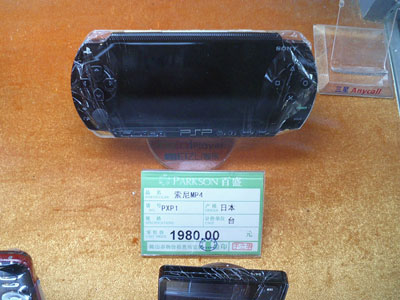Video game industry in China- an unlawful 'million-dollar baby'
By Lei Xiaoxun (Chinadaily.com)Updated: 2007-04-11 17:11
TV game industry's China dilemma
Bound to taxation policies strain and foreign video game behemoths' indifference to China's market, video game in China is facing an awkward dilemma: the formidable mismatch between demand and legal supply. Hence the flourishing underground smuggling biz finds the most lucrative loopholes on the industry profit chain.
Xiao Wang, a hardcore TV-gamer, intends to run his own TV games gadgets shop in Gulou (drum tower) street where video game business is crowned as kingpin community industry. "Among the cutting-throat competitions from other vendors, I have tried my very best to unearth a trustworthy supplier, but my efforts come in no avail." Wang shakes his head, seemingly desperate to drop his brainchild with an initial budget of 100,000 (US$129,014).
|
|
"Barely with any exception, all the game consoles sold in mainland market are contraband." Wang says, referring to PS (Sony's Play Station), PS2 and the gamers mostly-talked PSP, PS3 and Microsoft's XBOX 360.
As an industry insider reveals, there are roughly thousands of commercial entities running TV-game related business at varied scales across China. Beijing alone, in particular regard, has several hundreds stores. As for an individual TV game console and accessories vendor, attaining a daily average turnover of roughly 3,000 yuan (US$387) is just a piece of cake, given that TV game industry is in its heyday now in China. "That is a multi-billion huge trove of money," he says.
Loopholes on the profit chain
Ironically, smuggled game consoles sold on mainland find themselves in such solitude that there is almost no authorized equivalent coming across border through legitimate channel, although their popularity has reached its frenzy high.
Unreasonably high tax imposed on imported games consoles and TV game industry giants' negligence to China are the mostly-blamed foes, China's TV game fans always complain. According to China Business Post, their anonymous industry source confirms that most of the smuggled game consoles are making their headway from Japan and other western markets, where the inflicted tax is comparatively much lower than in China. "Hong Kong is also an ideal source."
Then the so-called 'premature cores' games consoles embark on Guangzhou and Shenzhen's turf, where they get installed and then wrapped up and packaged with homegrown materials. That is to say, as China Business Post deduces, it takes more than 3 to 5 steps before a PSP or whatever game console to reach its ultimate consumer. "That's the reason that Chinese gamers have to pay extra several hundreds yuan to get their beloved game consoles, that's unfair indeed." Wang says.
As a matter of fact, those 'headstream' smugglers grab the fattest tranche of profits, after several layers of profit peeling, the downstream vendors can churn up only a thin slice of profit, "Basically about 50 (US$6.5) to 100 (US$12.9) for every sold game console." Wang says.
Consequently, for most TV game shop proprietors, accessories are prioritized No. 1 cash cow. Accessory sales generate an aggregate 70% profit for TV game industry, China Business Post compiled data shows, counterfeit and shoddy products grab the majority of market. Xiao Wang explains, citing HORI screen film (film to protect PSP screens from scratch) as an example, "genuine HORI screen film is already extinct from the market, with money-driven inducement, every vendor is marketing expansive fake HORI screen films."
Another choice to make good deal on TV games consoles is the 'refurbishing' business, lots of unscrupulous smugglers collected used or recycled game consoles from abroad at 'trash price', they transport such loot into their refurbishing bases mainly located in Guangdong province, "they have the machines face-lifted and renewed" Xiao Wang says, and price such game consoles relatively lower, "what is funny is that, it sells really good!"
Freak industry
TGBS.COM, a Chinese online community enjoys acclaimed prestige of Chinese domestic gamers, brags that it receives a daily PV (page view) of 1 million, "it's only a tip of an iceberg," so says the website's editor, Yang Rui, when being asked to scale Chinese game fans population. "It is definitely an astonishing figure, and I am sure both Sony and Microsoft will have their jaws down when they see the real number." Yang smiles.
The status quo of TV game industry makes perfect seedbed for game-related software piracy, "I think it's quite understandable," says Yang Rui, for most gamers, they are paying too high a price to take home consoles they want, herewith they are reluctant to pay another considerable sum to get authorized software, "moreover, only 5 yuan (US$0.64) priced pirated game software really nullifies one's IPR protection awareness, given that authorized software costs hundred-times more than that sum."
There is a huge imbalance between demand and supply, especially legal supply. Industry insiders' patience is wearing thin as they have kept longing for industry policies and regulations for years, albeit TV game industry is still outside IT watchdog's supervising radar. "I hope my game consoles can one day be granted legal identity," Xiao Wang concludes.
Xiao Wang has reason to embrace optimism, since China is churning out more sophisticated development strategy for its TV game industry, with one hand on enhancing homegrown TV game industrial capability, the other on iron-fisted crackdown on electronics products smuggling and software piracy.
Is Chinese TV game's dawn looming soon? Let's wait and see.
|
||
|
||
|
|

